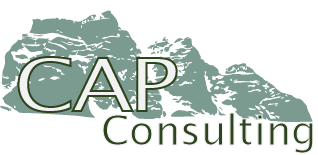To us, a big part of making CAP Consulting accessible means being connected with the barriers that people face in their daily lives, and by extension the impact our work has on these barriers and challenges. One project we have recently been involved with is the Passport Program, which is administered in Toronto through Family Service Toronto. The Passport Program provides direct funding for adults with developmental disabilities for things such as community participation supports, respite, person-directed planning, and support for the activities of daily living. You can read more about our work with FST here.
Recently, the Passport Program has been featured in province-wide news. A scathing report summarizing an investigation by the Ontario ombudsman into the state of services for adults living with developmental disabilities was released this Wednesday, August 24th. (CBC article about the report's findings) The investigation has already served as a wake up call for certain groups, although many people in the disability services community were already aware that there was a crisis on hand. In Wednesday's paper, the Toronto Star ran a series of stories by Andrea Gordon featuring not just the details of the coming report, but also highlighted various individuals and their caregivers, and the challenges they face accessing services. The articles feature some of the horrific situations many caregivers are often forced into and the traumatic consequences they can have on families.
A story like this takes on new meaning for us once we have had first hand experience working not just with this community, but even more closely with the Passport Program itself. CAP Consulting was involved in evaluating what the needs were of the recipients of the funds, consulting on how they use their funds now, and how they wish they would be able to use them in the future. Through our work, we observed how beneficial this program is, with improving both the lives of the clients and of their caregivers. We also observed that although this program has been a huge help to those who receive it, it's still not enough.
Articles like this one prove to us that our work is important and most significantly, relevant. The issues we encountered and highlighted with our final report are not limited to the 50 or so individuals we encountered in our research, but instead are mutual challenges and barriers to the over 5,800 people who are still on the waiting list just to have access to the program and the thousands more adults in Ontario living with developmental disabilities with inadequate access to supports and services. This issue is one we strongly believe in, so we feel grateful that we have been able to work directly with this community and that not only has this critical issue been on the front of our minds recently, but on the provinces and the media's as well.


